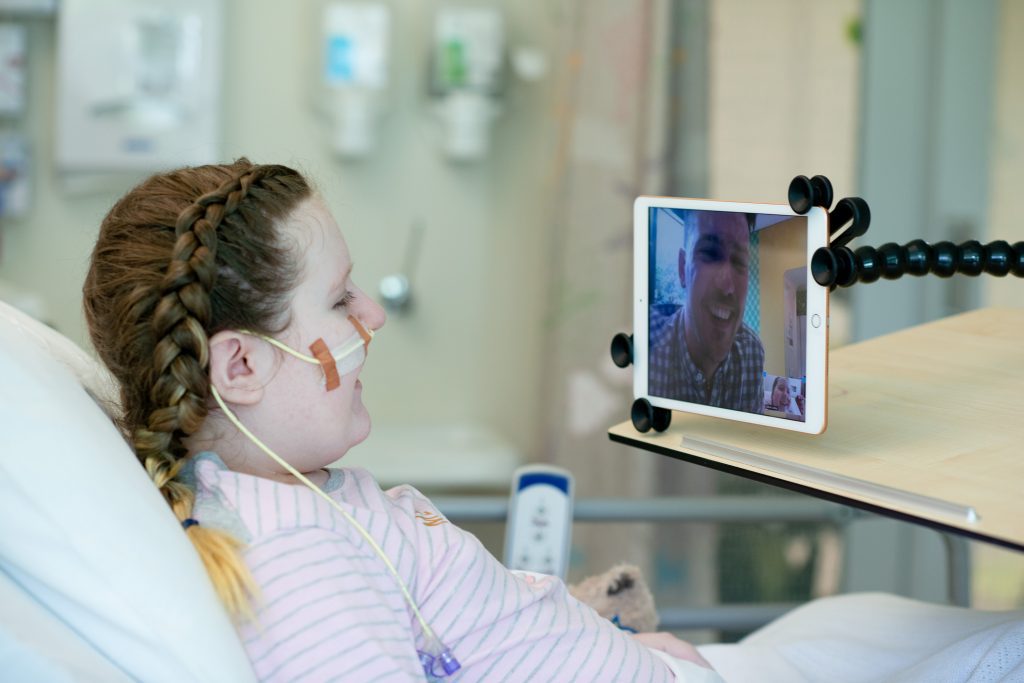A hospital stay causes many disruptions to a child or young person’s life, including missing out on school. However, for patients at The Royal Children’s Hospital (RCH), the ongoing support of the Education Institute is essential in ensuring patients can stay connected to their education, especially during the current COVID-19 crisis.
Thanks to the generosity of Officeworks and their community, an incredible $63,820 was recently raised to support teachers at the Education Institute. Throughout July, the Round Up to Make a Difference campaign allowed customers across a number of Melbourne stores to round up the cost of their purchase and donate the difference to the RCH. With the funds, patients like Aleacia can keep connected with online learning, ensuring the safety of both patients and teachers.
“We’re so grateful to Officeworks, their customers and the RCH Foundation for their ongoing support. Being able to keep our students engaged with their learning during this stressful time makes a huge difference to their overall happiness and is vital for their ongoing education. Thank you!” said Naomi.

RCH patient Aleacia on Zoom with Education Institute teacher Andy.
The RCH Education Institute team, consisting of teachers, education consultants and additional learning support staff, cater for all learning abilities and levels from kindergarten through to secondary school. The team work closely with a patient’s enrolled school to make sure they can continue their learning and are able to transition back smoothly once they have been discharged from hospital.
“Children and young people managing a chronic or serious illness bring with them particular needs for support with education and learning because so many of them are at an increased risk of disengagement,” said Naomi McBride, Director of the Education Institute.
Due to COVID-19, face to face teaching and learning was put on hold to maintain patient and teacher safety – but this did not mean school was out.
“Our team needed to adapt quickly to the COVID-19 environment, including the use of virtual learning technology to reach our students. By utilising Zoom, Google Classroom and Edmodo, our teachers, with the support of families, could provide both individual and group learning experiences remotely,” said Naomi.
A typical school session now means students receive resources to support their learning ahead of time and then use Zoom to interact with the teacher and other patients in their online classroom.
The learning programs created have a strong focus on literacy and numeracy, and are underpinned by a proven approach to engage children and young people.
From learning about Australian wildlife after the bushfires, appreciating the diversity of global cultures and places, taking virtual tours of museums, practicing goal setting and preparing to transition to high school or the workforce, the Education Institute encourages curiosity and experiential learning with interactive teaching methods.
This educational innovation continued in the recent school holidays with the commencement of a Virtual School Holiday Program, led by two teachers at the RCH Education Institute. With the generous support of Creative Studios, the in-house television production team at the RCH, patients were provided with an educational resource pack for the two-week period. Patients then tuned in to RCH TV from their hospital room for live-streamed lessons with a focus on literacy and visual art.